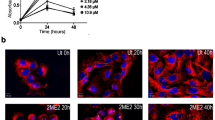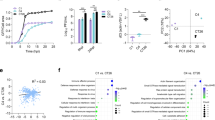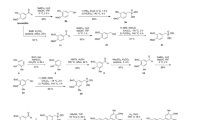Abstract
Cancer virotherapy provides a new strategy to treat cancer that can directly kill cancer cells by oncolysis. Insertion of therapeutic genes into the genome of a modified adenovirus, thereby creating a so-called gene-virotherapy that shares the advantages of gene therapy and virotherapy. In this study we investigated whether a strategy that combines the oncolytic effects of an adenoviral vector with the simultaneous expression of the autophagy gene Beclin-1 offered a therapeutic advantage for chronic myeloid leukemia (CML) cells with resistance to chemotherapy and evaluated the synergistic effects of SG511-BECN and doxorubicin (Dox) in human CML cells in vitro. Oncolytic virus SG511-BECN was constructed through introducing the Beclin-1 gene into the oncolytic adenoviral backbone. SG511-BECN displayed significantly improved antileukemia activity on multidrug-resistant CML cell line K562/A02, which was mediated via induction of autophagic cell death. Furthermore, Dox could synergize with SG511-BECN to kill the CML cells by improving the infectious efficiency of the oncolytic adenovirus without causing significant damage to normal human mononuclear cells. The results demonstrate that targeting the autophagic cell death pathway and combination of a chemotherapy agent with oncolytic adenovirus may be a novel strategy for the treatment of leukemia with chemotherapy resistance.
Similar content being viewed by others
Log in or create a free account to read this content
Gain free access to this article, as well as selected content from this journal and more on nature.com
or
References
Eager RM, Nemunaitis J . Clinical development directions in oncolytic viral therapy. Cancer Gene Ther 2011; 18: 305–17.
Zhang Q, Chen G, Peng L, Wang X, Yang Y, Liu C, et al. Increased safety with preserved antitumoral efficacy on hepatocellular carcinoma with dual-regulated oncolytic adenovirus. Clin Cancer Res 2006; 12: 6523–31.
Jin H, Lu S, Yang J, Wang X, Hu H, Su C, et al. Use of microRNA Let-7 to control the replication specificity of oncolytic adenovirus in hepatocellular carcinoma cells. PLoS One 2011; 6: e21307.
Vasey PA, Shulman LN, Campos S, Davis J, Gore M, Johnston S, et al. Phase I trial of intraperitoneal injection of the E1B-55-kd-gene-deleted adenovirus ONYX-015 (dl1520) given on days 1 through 5 every 3 weeks in patients with recurrent/refractory epithelial ovarian cancer. J Clin Oncol 2002; 20: 1562–9.
Kimball KJ, Preuss MA, Barnes MN, Wang M, Siegal GP, Wan W, et al. A phase I study of a tropism-modified conditionally replicative adenovirus for recurrent malignant gynecologic diseases. Clin Cancer Res 2010; 16: 5277–87.
Short JJ, Curiel DT . Oncolytic adenoviruses targeted to cancer stem cells. Mol Cancer Ther 2009; 8: 2096–02.
Rivera AA, Davydova J, Schierer S, Wang M, Krasnykh V, Yamamoto M, et al. Combining high selectivity of replication with fiber chimerism for effective adenoviral oncolysis of CAR-negative melanoma cells. Gene Ther 2004; 11: 1694–702.
Ranki T, Hemminki A . Serotype chimeric human adenoviruses for cancer gene therapy. Viruses 2010; 2: 2196–212.
Hermiston T . Gene delivery from replication-selective viruses: arming guided missiles in the war against cancer. J Clin Invest 2000; 105: 1169–72.
Liu XY, Qiu SB, Zou WG, Pei ZF, Gu JF, Luo CX, et al. Effective gene-virotherapy for complete eradication of tumor mediated by the combination of hTRAIL (TNFSF10) and plasminogen k5. Mol Ther 2005; 11: 531–41.
He X, Liu J, Yang C, Su C, Zhou C, Zhang Q, et al. 5/35 fiber-modified conditionally replicative adenovirus armed with p53 shows increased tumor-suppressing capacity to breast cancer cells. Hum Gene Ther 2011; 22: 283–92.
Yang C, Tong Y, Ni W, Liu J, Xu W, Li L, et al. Inhibition of autophagy induced by overexpression of mda-7/interleukin-24 strongly augments the antileukemia activity in vitro and in vivo. Cancer Gene Ther 2010; 17: 109–19.
Mashima T, Tsuruo T . Defects of the apoptotic pathway as therapeutic target against cancer. Drug Resist Updat 2005; 8: 339–43.
Chen N, Karantza V . Autophagy as a therapeutic target in cancer. Cancer Biol Ther 2011; 11: 157–68.
Chen Y, McMillan-Ward E, Kong J, Israels SJ, Gibson SB . Oxidative stress induces autophagic cell death independent of apoptosis in transformed and cancer cells. Cell Death Differ 2008; 15: 171–82.
Høyer-Hansen M, Bastholm L, Mathiasen IS, Elling F, Jäättelä M . Vitamin D analog EB1089 triggers dramatic lysosomal changes and Beclin 1-mediated autophagic cell death. Cell Death Differ 2005; 12: 1297–309.
Qian W, Liu J, Jin J, Ni W, Xu W . Arsenic trioxide induces not only apoptosis but also autophagic cell death in leukemia cell lines via up-regulation of Beclin-1. Leuk Res 2007; 31: 329–39.
Carew JS, Nawrocki ST, Kahue CN, Zhang H, Yang C, Chung L, et al. Targeting autophagy augments the anticancer activity of the histone deacetylase inhibitor SAHA to overcome Bcr-Abl-mediated drug resistance. Blood 2007; 110: 313–22.
Tong Y, You L, Liu H, Li L, Meng H, Qian Q, et al. Potent antitumor activity of oncolytic adenovirus expressing Beclin-1 via induction of autophagic cell death in leukemia. Oncotarget 2013; 4: 860–74.
Kimura S, Ando T, Kojima K . Ever-advancing chronic myeloid leukemia treatment. Int J Clin Oncol 2014; 19: 3–9.
Hochhaus A, O'Brien SG, Guilhot F, Druker BJ, Branford S, Foroni L, et al. Six-year follow-up of patients receiving imatinib for the first-line treatment of chronic myeloid leukemia. Leukemia 2009; 23: 1054–61.
Mahon FX, Deininger MW, Schultheis B, Chabrol J, Reiffers J, Goldman JM, et al. Selection and characterization of BCR-ABL positive cell lines with differential sensitivity to the tyrosine kinase inhibitor STI571: diverse mechanisms of resistance. Blood 2000; 96: 1070–9.
Laane E, Tamm KP, Buentke E, Ito K, Kharaziha P, Oscarsson J, et al. Cell death induced by dexamethasone in lymphoid leukemia is mediated through initiation of autophagy. Cell Death Differ 2009; 16: 1018–29.
Goussetis DJ, Altman JK, Glaser H, McNeer JL, Tallman MS, Platanias LC . Autophagy is a critical mechanism for the induction of the antileukemic effects of arsenic trioxide. J Biol Chem 2010; 285: 29989–97.
Heidari N, Hicks MA, Harada H . GX15-070 (obatoclax) overcomes glucocorticoid resistance in acute lymphoblastic leukemia through induction of apoptosis and autophagy. Cell Death Dis 2010; 1: e76.
Bonapace L, Bornhauser BC, Schmitz M, Cario G, Ziegler U, Niggli FK, et al. Induction of autophagy-dependent necroptosis is required for childhood acute lymphoblastic leukemia cells to overcome glucocorticoid resistance. J Clin Invest 2010; 120: 1310–23.
Kruyt FA, Curiel DT . Toward a new generation of conditionally replicating adenoviruses: pairing tumor selectivity with maximal oncolysis. Hum Gene Ther 2002; 13: 485–95.
Post DE, Khuri FR, Simons JW, Van Meir EG . Replicative oncolytic adenoviruses in multimodal cancer regimens. Hum Gene Ther 2003; 14: 933–46.
Libertini S, Iacuzzo I, Ferraro A, Vitale M, Bifulco M, Fusco A, et al. Lovastatin enhances the replication of the oncolytic adenovirus dl1520 and its antineoplastic activity against anaplastic thyroidcarcinoma cells. Endocrinology 2007; 148: 5186–94.
Meng HT, Li L, Liu H, Wang Y, Li GC, Qian W . Homoharringtonine acts synergistically with SG235-TRAIL, a conditionally replicating adenovirus, in the treatment of leukemia. Acta Pharmacol Sin 2009; 11: 1529–36.
Acknowledgements
This study was supported by the National Natural Science Foundation of China (No 81500110), Department of Education of Zhejiang Province (No Y201120523), Zhejiang Provincial Natural Science Foundation (No LY15H080001) and Special Scientific Construction Research Funds of National Chinese Medicine Clinical Research Center, SATCM (No JDZX2015113).
Author information
Authors and Affiliations
Corresponding author
Rights and permissions
About this article
Cite this article
Li, L., You, Ls., Mao, Lp. et al. Combing oncolytic adenovirus expressing Beclin-1 with chemotherapy agent doxorubicin synergistically enhances cytotoxicity in human CML cells in vitro. Acta Pharmacol Sin 39, 251–260 (2018). https://doi.org/10.1038/aps.2017.100
Received:
Accepted:
Published:
Version of record:
Issue date:
DOI: https://doi.org/10.1038/aps.2017.100
Keywords
This article is cited by
-
A selenium-containing selective estrogen receptor modulator to overcome drug resistance of chronic myeloid leukemia
Apoptosis (2026)
-
Plasmacytoid dendritic cells orchestrate innate and adaptive anti-tumor immunity induced by oncolytic coxsackievirus A21
Journal for ImmunoTherapy of Cancer (2019)



